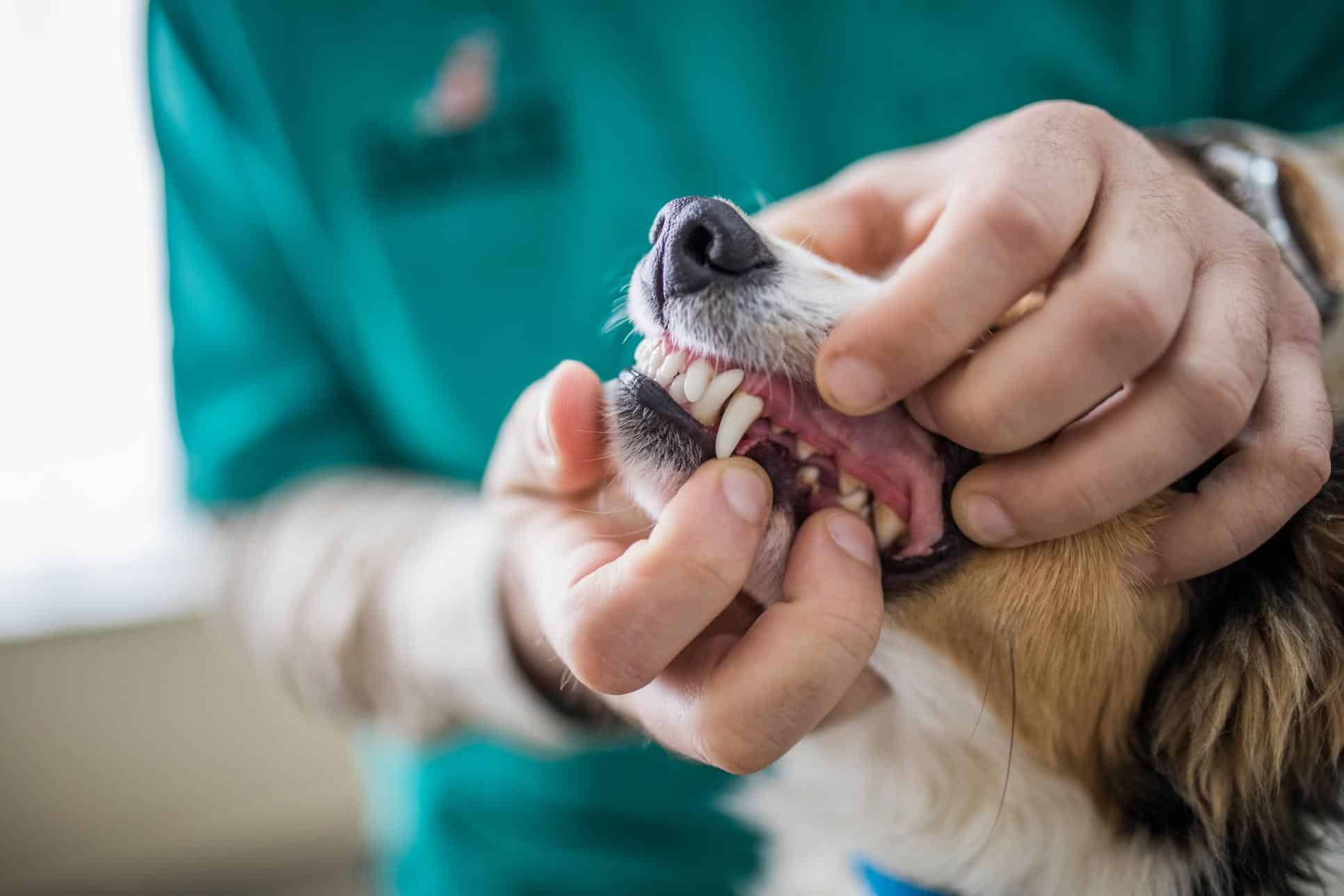The Importance of Regular Dental Check-Ups

Pet dental care is an important facet of overall pet health and wellness. February is Pet Dental Health Month, and we are excited to share why regular dental check-ups are so vital to pet wellness.
Beyond Bad Breath
Bad breath, or halitosis, is associated with gingivitis, the first stage of periodontal disease (out of four stages). Oral bacteria forms plaque, the slimy substance that coats teeth. Left alone, plaque hardens into tartar, especially at the gum line where it pulls the gums away from the teeth. The spaces between the teeth and gums harbor more bacteria, plaque, and tartar in a self-perpetuating cycle that leads to tooth loss and pain.
Interrupting That Cycle
Brushing a pet’s teeth several times a week inhibits the growth of oral bacteria, decreasing the chances of plaque spreading in the mouth. If plaque is allowed to flourish uninterrupted, a pet’s teeth and gums can become vulnerable to decay, fractures, and loss.
Brushing a pet’s teeth every day can significantly lower these risks. However, even 2-3 times a week can positively impact pet dental hygiene. Here are some tips to simplify at-home pet dental care:
- Acquire pet-specific tools. Small, angled, double-sided toothbrushes can help you access the back molars without too much trouble. Pet toothpaste comes in various flavors. No human toothpaste is safe for pet use.
- Slowly insert the toothbrush to allow your pet to smell or nibble on it.
- Offer lots of praise, treats, and soothing touches. You want them to have positive associations with toothbrushing.
- Keep sessions short and rewarding. Attempt brushing after exercise and part of the overall grooming chore.
- If your pet allows it (and they will, eventually) slowly move the toothbrush in small circles, touching every tooth in the mouth for several seconds. Pay close attention to the back molars.
- Stay positive and patient.
Dental Check-Ups
While we try to see as much as possible while a pet is awake, a full picture of their teeth and gums is only achieved under general anesthesia. Because periodontal disease affects the tissues beneath the gum line, digital X-rays have the potential to reveal the extent of damage caused by the disease, and the exact location in the mouth.
Full-scale cleaning and polishing of the teeth is part of a critical defense against periodontal disease. If digital X-rays show that tooth extractions are necessary to prevent further damage, this is a likely next step. Diet modifications help pets bounce back after dental surgery, but it can take some time for pets to adapt to a wet or canned diet after a kibble-only meal plan.
Dental Health Benefits
Not only will your pet’s mouth smell great, but preventing dental disease saves money and adds years to a pet’s life.
If you have questions about the ways you can achieve pet dental health, please call us at (770) 924-8847. Our team at Animal Hospital of West Woodstock is always happy to help your pet.
